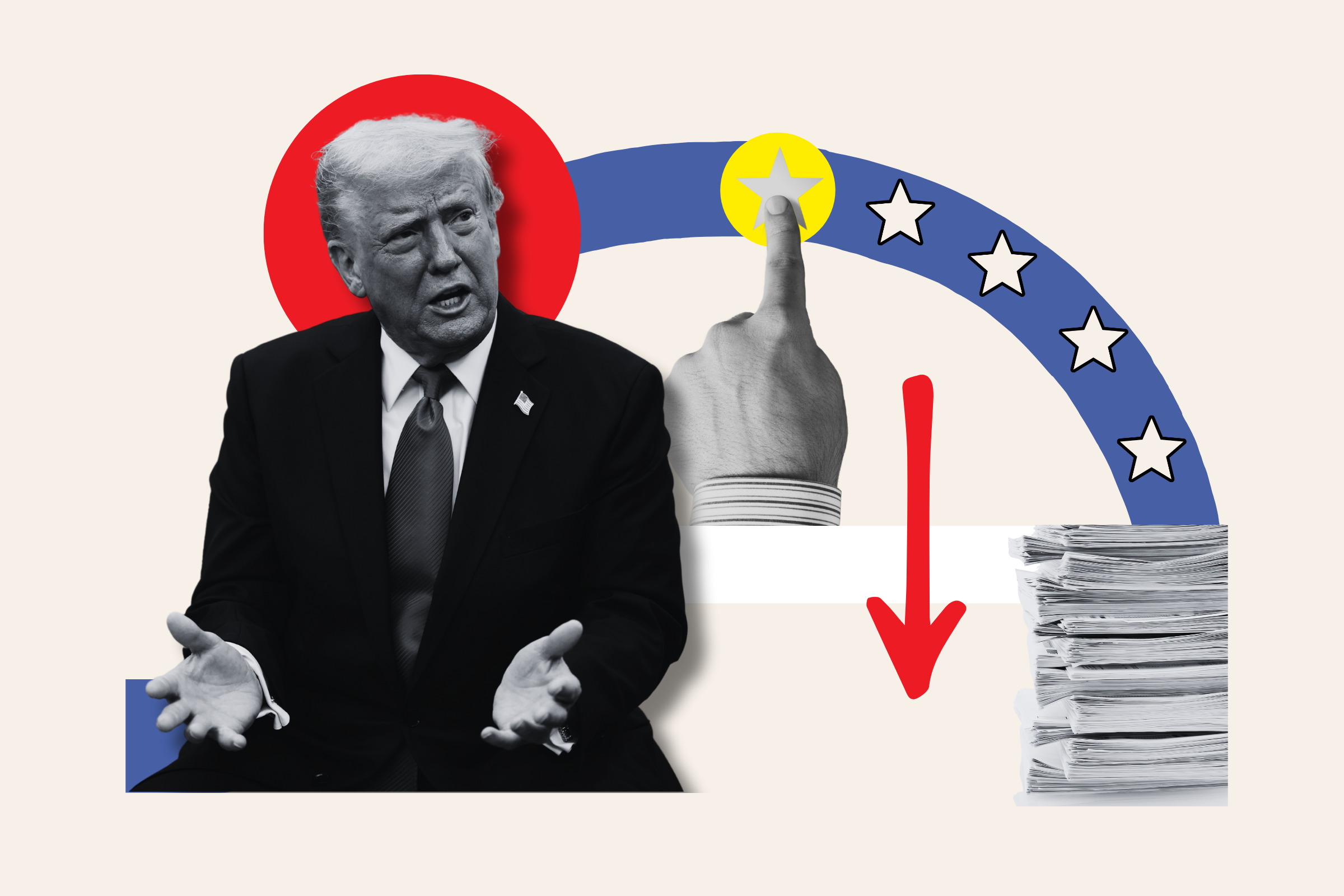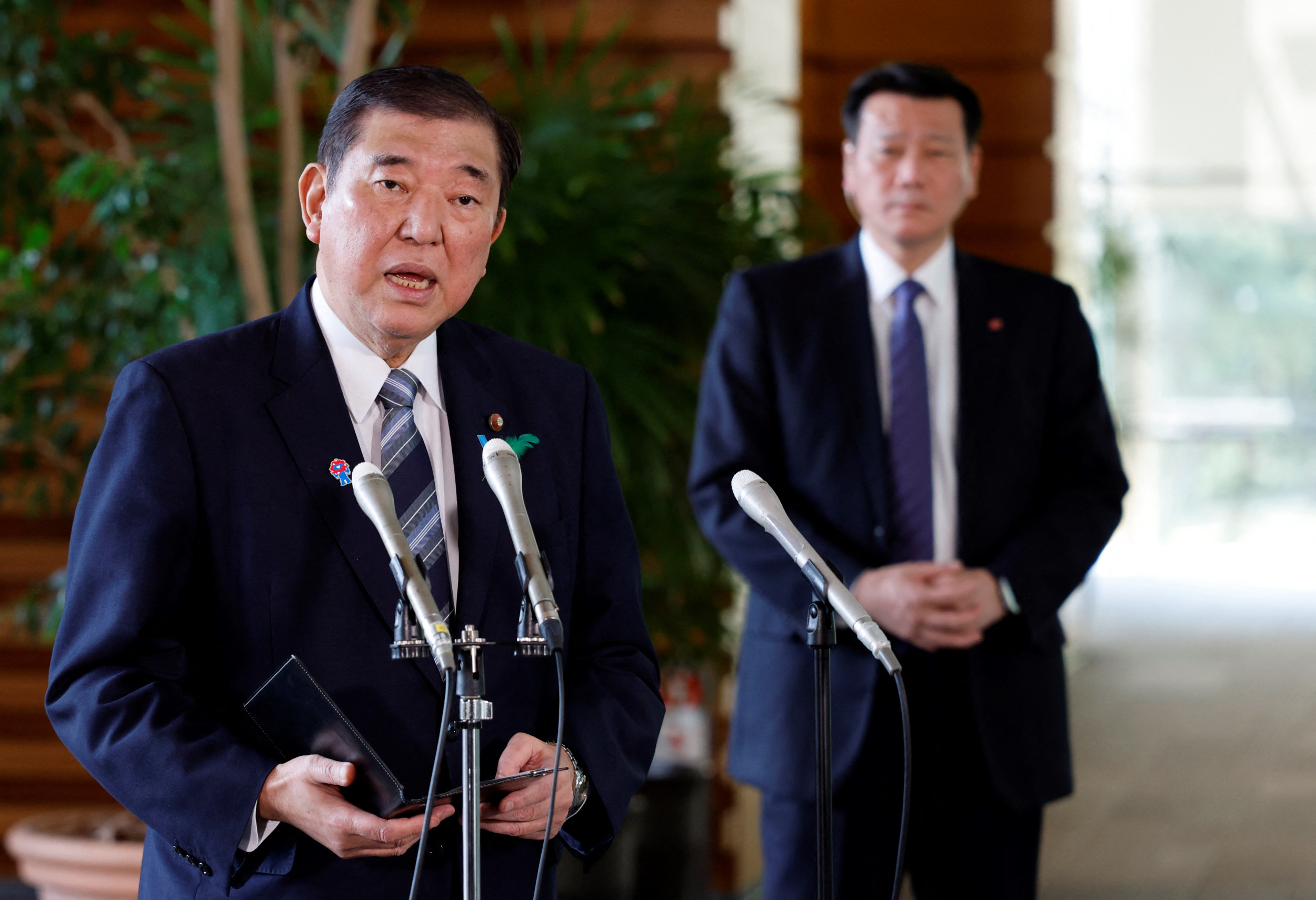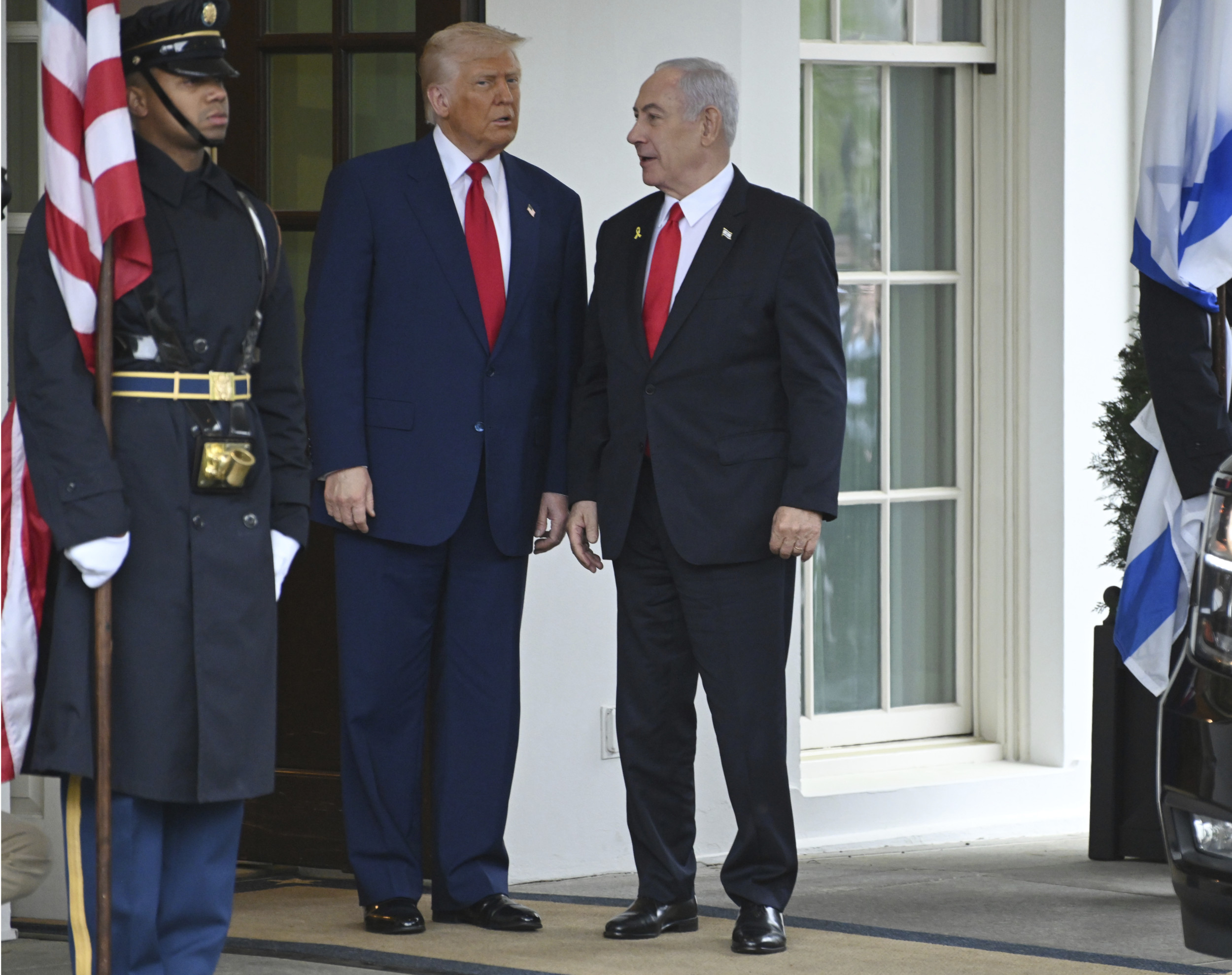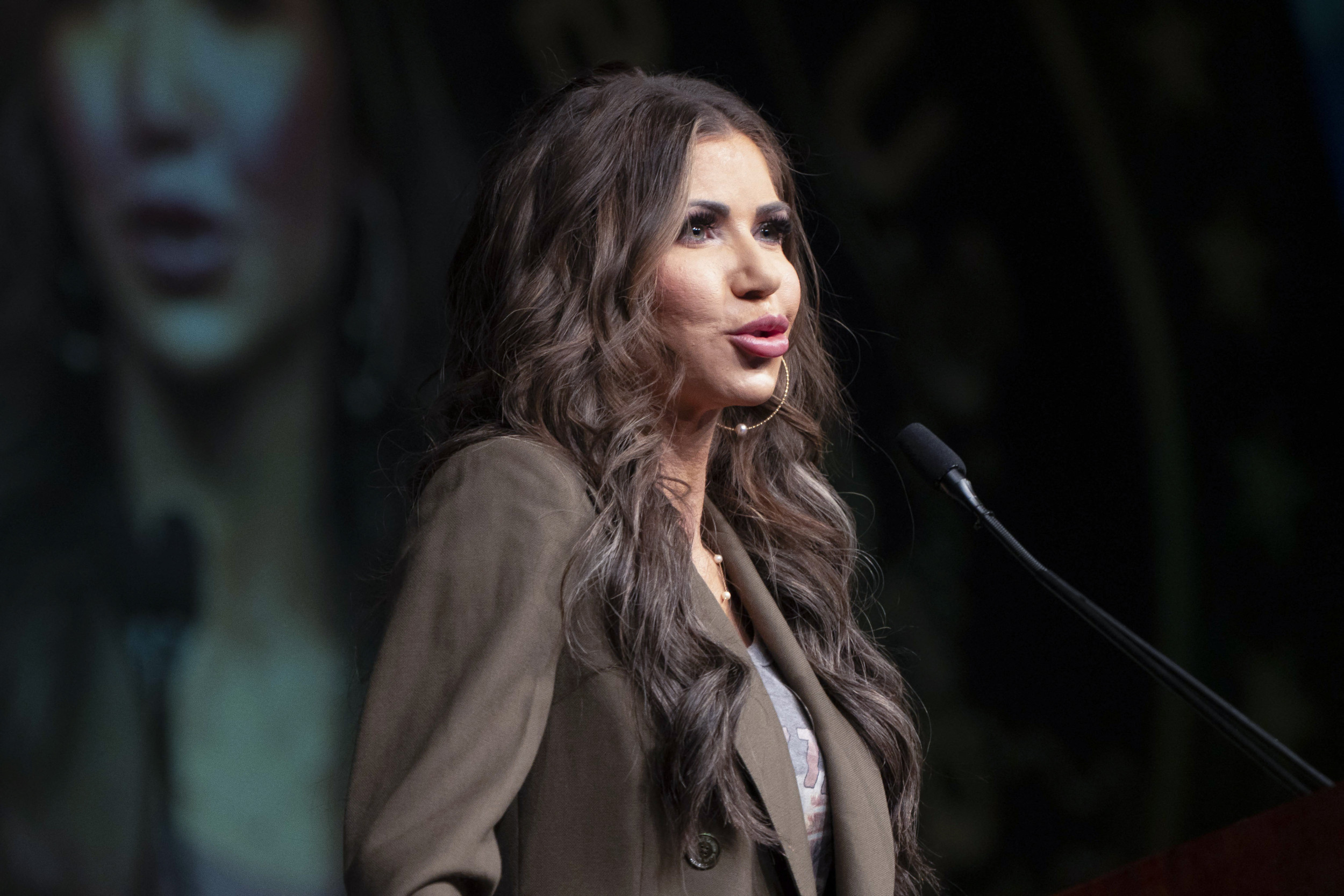🎙️ Voice is AI-generated. Inconsistencies may occur.
As Robert F. Kennedy Jr. continues to seek Secret Service protection amid his independent bid for the presidency, his lawyer has received a document via the Freedom of Information Act (FOIA) detailing 34 instances of threats and bizarre rants directed toward his client.
Newsweek reviewed portions from the 775-page FOIA document obtained by Kennedy attorney Aaron Siri, which provides some unreported details of previously known events along with some that were not known to the public.
The document comes after repeated denials of Secret Service protection for Kennedy. Siri has sent at least six letters to U.S. Secretary of Homeland Security Alejandro Mayorkas formally requesting protection. Last month, former House member Patrick Kennedy emailed Mayorkas, seeking answers for the denials as well.
"As a family member of Robert F. Kennedy Jr., as a former member of Congress, and as a member of the public, I struggle to understand the administration's persistent refusal to grant Secret Service protection to a presidential candidate deemed by the Secret Service itself to be at elevated risk," Patrick Kennedy wrote to Mayorkas in an email obtained by Newsweek.
In an interview with Newsweek and without providing details, the presidential candidate described the meeting between his cousin, Patrick, and Mayorkas' chief of staff, Jonathan Davidson, as "passionate."
"Patrick and I differ on some political Issues. I'm grateful for his deep love and concern for the safety of myself and my family," Robert F. Kennedy Jr. told Newsweek. Patrick Kennedy endorsed his cousin for president in May.
Threats to Kennedy
Many of the threats laid out in the document are presumably known to Kennedy's camp since they came by way of emails to him or via comments at his campaign's website. While the document lists specific threats against Kennedy, it redacts the names of those making the threats.
Siri has been asking the Secret Service to provide names, but the document simply lists them as "known subjects." Several reasons are listed for the redaction, including invasion of privacy, the information was provided by a confidential source, providing such information would reveal investigative techniques and procedures, and medical privacy.
One of the more dramatic entries involves a man claiming in an email sent to Kennedy that he was offered money to assassinate him, but if Kennedy paid him half that sum they would not. "Do not involve police or else you die !!!" the person wrote.
Still another promised on social media to "kill rfk jr lawfully on USA soil. Bullets right into the head," while another wrote, "RFK is not immune from a 7.62x54r bullet."
One "known subject" posted on Kennedy's website that he is a "menace" and a "s*** stain on this country" and that he hopes the candidate will "die a slow painful death."
One person who obtained Kennedy's phone number texted him multiple times. "How about you f*** off or I'll come to your event and shoot every single person who attends." A follow-up text read: "Execution style and i'll broadcast the entire shooting on live TV."
Demands for Protection
One of the grounds for Secret Service protection is threats against the candidate. The rules stated on the Secret Service website says that Mayorkas should also take into account "a threat assessment conducted by the Secret Service of general or specific threats directed towards the candidate."
After his email, Patrick Kennedy followed up with a letter to Senate Majority Leader Chuck Schumer and House Speaker Mike Johnson, Newsweek also learned, and that led to a meeting between Patrick Kennedy and Davidson.
"It is profoundly disappointing to learn that intelligence officials might have narrowed the scope of their analysis to a series of technical parameters, divorced from the inordinate threat Bobby faces. It is untenable to dismissively conclude that this case is routine or akin to others," Patrick Kennedy wrote to Johnson and Schumer.
"Bobby endured the unimaginable trauma of being present at his father's violent death. The trauma to the national psyche of a repeat event transcends a wooden technical analysis. It is incumbent upon the nation's intelligence apparatus to weigh these unique factors appropriately in the interest of all citizens," the letter reads.
On June 6, Siri fired off a letter to Mayorkas, demanding he disclose the identities of all those who pose a threat to the independent candidate for president.
The letter, reviewed by Newsweek, demands for at least the sixth time that Mayorkas provide Kennedy with Secret Service protection and it claims that his denying to do so is based on "personal" and "political" reasons.
The letter threatens legal action and invokes the term, ultra vires, usually described as an act requiring legal authority but done without such authority. The June 6 letter comes after a similar one from Siri to Mayorkas dated March 28.
Kennedy alleged that Mayorkas is colluding with President Joe Biden to deny Secret Service protection, forcing Kennedy to foot the bill for personal security, thus depriving his campaign of funds that would otherwise be used to promote his candidacy.
The White House did not respond to Newsweek's request for comment.
Tom Balcerski, presidential historian at Eastern Connecticut State University, told Newsweek that Kennedy's is "the most high-profile request to ever be denied. Which is particularly poignant given it was the assassination of his father [Robert F. Kennedy] in 1968 that changed the way candidates are protected."
After that assassination, third-party candidate George Wallace was given Secret Service protection. Ross Perot, who ran as an independent candidate three decades ago, never asked for protection.
"Given Joe Biden's recent performance in the debate, there's new turmoil here that upsets the balance of the two parties," Balcerski said. "Americans want third parties and giving Kennedy protection would give him political currency. The speculation is that Biden doesn't want that and Mayorkas is following the lead of his direct superior."

Kennedy's uncle, President John F. Kennedy, was also assassinated, when Lee Harvey Oswald allegedly shot him in Dallas, Texas, on November 22, 1963.
Notably, Oswald was also accused of killing police officer J.D. Tippit later that day, and Siri's letter notes that Mayorkas' refusal to provide Kennedy with Secret Service protection puts others in danger.
Oswald never had his day in court on either of the murder charges because he was shot dead two days later by Jack Ruby.
"You will be unable to hide behind your political position to avoid being sued for any injury or death resulting from an attack that could have been prevented had you not denied protection for purely personal and political reasons," the letter continues.
Siri's letter infers that there are other examples, and/or names of examples known, that are being withheld from the candidate. It appears the document obtained via the FOIA request addresses some of Siri's concerns, though not all of them.
"We therefore again demand that you provide Mr. Kennedy Secret Service protection as Congress intended, forthwith, to avoid the same calamity that befell his father and his uncle, and additionally demand that you immediately disclose all individuals identified by DHS and USSS who pose a threat to Mr. Kennedy; the latter is the very least you can do," Siri wrote.
Further Grounds for Secret Service Protection
In the latest denial letter from Mayorkas dated May 10 and also viewed by Newsweek, Mayorkas cites Title 18, U.S. Code, Section 3056(a)(7) and his consultation with an advisory committee made up of House Speaker Mike Johnson, House Minority Leader Hakeem Jeffries, Senate Majority Leader Chuck Schumer, Senate Minority Leader Mitch McConnell and Senate Sergeant at Arms Karen Gibson.
Newsweek reached out to Mayorkas and members of the advisory committee and will update the story should any of them respond.
The rule cited by Mayorkas stipulates that major presidential and vice presidential candidates are to be afforded Secret Service protection not more than a year ahead of the general election in November. Spouses, in Kennedy's case, actress Cheryl Hines, can also receive Secret Service protection, though not until 120 days prior to the general election in November, but exceptions have been made previously.
Examples of exceptions to those rules are numerous. Ted Kennedy received protection 441 days ahead of the 1980 presidential election when he lost the Democratic primary to Jimmy Carter, and Barack Obama in 2007 was given protection 551 days ahead of the general election while running against Hillary Clinton for the Democratic nomination. Other examples include Ben Carson and Trump.
Polling is also a consideration. According to the Secret Service website, "an independent or third-party candidate for president polling at 20 percent or more at the Real Clear Politics National Average for 30 consecutive days" would qualify as major.
On May 10, the latest time Mayorkas turned down Kennedy's request, the candidate polled at 10.8 percent in a five-way race against Biden, Trump, Cornel West and Jill Stein.
Kennedy dismisses as ridiculous the assertion he'd not be considered a major candidate, noting that his polling numbers are better than roughly 30 previous presidential candidates who have received Secret Service protection.
He also cites a John Zogby poll of 26,408 likely voters in every state with a margin of error of 0.6 percent taken in April. The poll indicated that if Trump were to drop out of the race, Kennedy would beat Biden in Electoral College votes and if Biden were to drop out, Kennedy would beat Trump.
"I have consistently had higher favorability numbers than President Trump or President Biden," he told Newsweek. "I consistently beat both in head-to-head races. No independent candidate in history has had those numbers."
Kennedy also points to a HarrisX poll taken after CNN's Trump-Biden debate where Kennedy had 19 percent of the vote in a three-way race, with Trump at 43 percent and Biden at 38 percent. A Pew Research poll also after the debate had 63 percent of likely voters calling both Biden and Trump "embarrassing."
He also noted that his campaign and the PACs supporting him have raised more than $100 million. (Trump and Biden have raised $388 million and $390 million in direct and outside money, respectively, according to OpenSecrets.org).
Kennedy's legal team has pointed out numerous times that the candidate qualifies due to threats against him, including an incident involving a man with a gun found at a campaign event, multiple occasions of trespassers on Kennedy's personal property and others laid out in the document obtained by FOIA request.
The latest letter from Mayorkas denying Kennedy's request for protection, like all but one before it, is not specific, simply stating: "I have determined that Secret Service protection for Robert F. Kennedy Jr. is not warranted at this time."
Newsweek contacted Siri about his most recent letter to Mayorkas and he sent an email reading: "Mr. Kennedy is more qualified and more at risk than numerous other candidates that have in the past received Secret Service Protection. The decision to deny him protection is clearly political."
fairness meter
About the writer
Paul Bond has been a journalist for three decades. Prior to joining Newsweek he was with The Hollywood Reporter. He ... Read more




